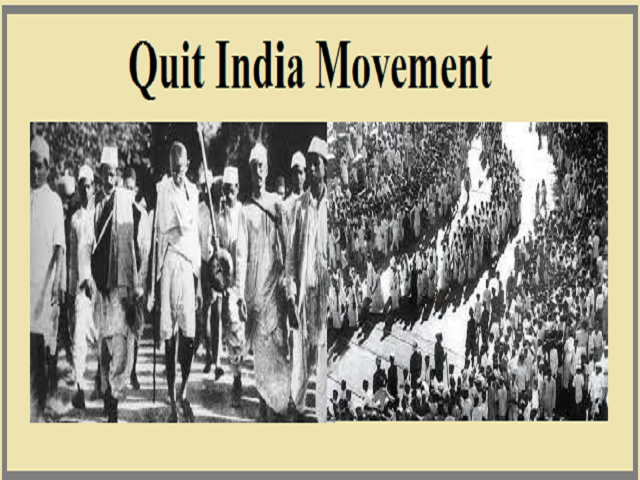Context
-
Recently, the Vice President of India has greeted the nation on the eve of the anniversary of Quit India Movement Day.
Back to Basics
About Quit India Movement
- The Quit India Movement also known as the August Movement, was a movement launched at the Bombay session of the All India Congress Committee by Mahatma Gandhi on 8 August 1942, at Mumbai’s Gowalia Tank Maidan also known as August Kranti Maidan, during World War II, demanding an end to British rule in India.
- It was officially launched by the Indian National Congress (INC) led by Mahatma Gandhi on 9 August 1942.
- After the failure of the Cripps Mission to secure Indian support for the British war effort, Gandhi made a call to Do or Die in his Quit India speech delivered in Bombay on 8 August 1942 at the Gowalia Tank Maidan.
- The draft proposed massive civil disobedience if the British did not accede to the demands.
- Maulana Abul Kalam Azad, Sarojini Naidu, Jawaharlal Nehru, Vallabhbhai Patel, Dr. Rajendra Prasad,S itaramaiyya, G.V.Pant,Praful Chandra Ghosh, Saiyyad Mehmood, Asaf Ali, J.B.Kriplani, Mahatma Gandhi, etc. had taken part.
- The president of this session was Maulana Abul Kalam Azad.

- On August 8, 1942 in the meeting of AICC, Jawaharlal Nehru presented Quit India resolution and Sardar Patel supported it. The draft of Quit India Resolution was prepared by Mahatma Gandhi.
- Mahatma Gandhi gave clear instructions on Gowalia Tank Maidan to all people who worked across various fields in the nation like Government Officers, Soldiers, Peasants.
- Muslim League, the Hindu Mahasabha, the Rashtriya Swayamsevak Sangh, the Communist Party of India and the princely states opposed the Quit India movement.
- In 1992, the Reserve Bank of India issued a 1 rupee commemorative coin to mark the Golden Jubilee of the Quit India Movement
- The slogan of ‘Do or Die’ remains the most Krantikari slogan to this day.
History Current Affairs : Click here
